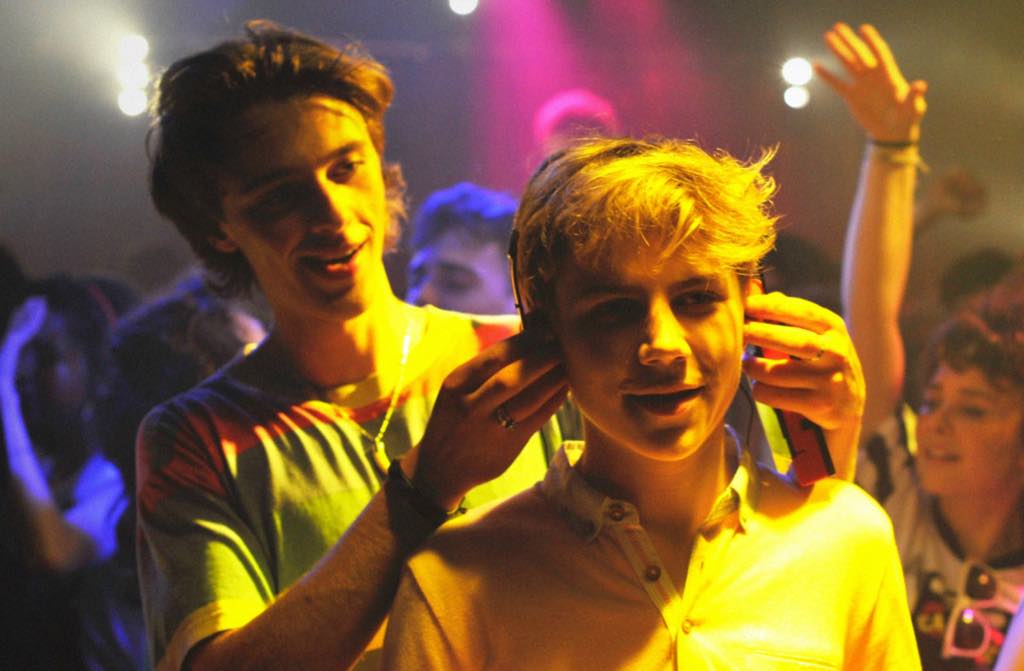
Director François Ozon’s Été 85, originally scheduled to be part of the official Cannes Film Festival lineup this year before the coronavirus crisis forced the festival’s cancellation, is the first major movie to be released in France post-lockdown. It also represented my own first tentative outing to an actual cinema in several months, and, even though it was strange to watch the film in a largely empty movie theater while wearing a face mask, it also felt like a blessing to be back.
Even though Été 85 is Ozon’s 19th feature film, it could reasonably be called his first. Ozon discovered Aidan Chambers’ 1982 novel, Dance on My Grave, when he was still a teenager and even co-wrote a script based on the book with a friend. That original screenplay was lost, but Ozon has said that his memory of the early adaptation informed this new version, transposed from the novel’s setting in southeast England to the coast of Normandy.
Ozon was 17 in 1985, and this nostalgic evocation of young love between 16-year-old Alexis (played by Félix Lefebvre) and 18-year-old David (Benjamin Voisin) has clear parallels with his own childhood. Like the young Ozon, 16-year-old Alexis is obsessed with Egyptian funerary rites. Indeed, much of the movie is haunted by the idea of death, which (though completely unintended when the film was created) makes it feel horribly relevant in the light of the thousands of Covid-related deaths this year. In fact, Ozon has mentioned in an interview that the prevalence of death in the film could be a subliminal evocation of AIDS, the last global plague, so prevalent in the mid-80s, even though the disease is not even mentioned in the film.
It is by no means a plot-spoiler to reveal that David will die, since the film starts with Alexis appearing before a tribunal after his friend’s death. The charges that he faces are only gradually revealed. He is encouraged by a teacher to write down his perception of events, and it is through Alexis’s creative eye that we view the main action of the film.
The two boys become friends after David rescues Alexis from a capsized boat and takes him home to his widowed mother, played by Valeria Bruni-Tedeschi (it always comes as a shock when actors who only recently were playing youthful leads progress to more mature roles). Alexis, who has just moved to the area with his working-class parents, begins to fall in love with the charismatic David, and the two become lovers.
The main body of the movie charts the idealism and jealousy of this first love over the course of the summer, as the two boys meet an English exchange student (played with a convincing English accent by Belgian Philippine Velge, who was trained at the Royal Academy of Dramatic Art in London).
Ozon’s decision to shoot with 16mm rather than digital film gives this evocation of the 1980s a warmth of texture that fits in well with the nostalgic theme as the two protagonists get to know each other. Music from the time is central to the movie, most touchingly when the boys dance together at a disco: while the upbeat disco music plays, David places Walkman headphones playing Rod Stewart’s rendition of “Sailing” over Alexis’s ears, and we see each boy dancing at the same time to very different rhythms. Ozon manages here to convey beautifully both intimacy and difference in one memorable moment.
I have reviewed many previous Ozon films on the pages of Paris Update, and my usual complaint is that, while stylistically he seems to reinvent himself every time (unlike a director like Pedro Almodóvar, whose style is so distinctive), the sheer number of Ozon’s movies makes one feel that he sometimes spreads himself a little too thin.
Some may feel that Été 85 lacks the edge or subversiveness of previous films, but its understated charm and the committed performance of its young leads make it one of the most purely enjoyable and engrossing examples of his cinematic output. Unlike Ozon’s most recent film, the unremittingly earnest and uncinematic Grâce à Dieu (2019), Été 85 is the ideal work for anyone who wishes to rediscover the joy of going to the cinema.
Favorite